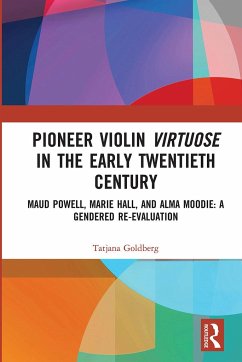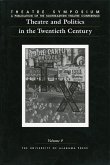Tatjana Goldberg reveals the extent to which gender and socially constructed identity influenced female violinists' 'separate but unequal' status in a great male-dominated virtuoso lineage by focussing on the few that stood out: the American Maud Powell (1867-1920), Australian-born Alma Moodie (1898-1943), and the British Marie Hall (1884-1956). Despite breaking down traditional gender-based patriarchal social and cultural norms, becoming celebrated soloists, and greatly contributing towards violin works and the early recording industry (Powell and Hall), they received little historical recognition. Goldberg provides a more complete picture of their artistic achievements and the impact they had on audiences.
Bitte wählen Sie Ihr Anliegen aus.
Rechnungen
Retourenschein anfordern
Bestellstatus
Storno








